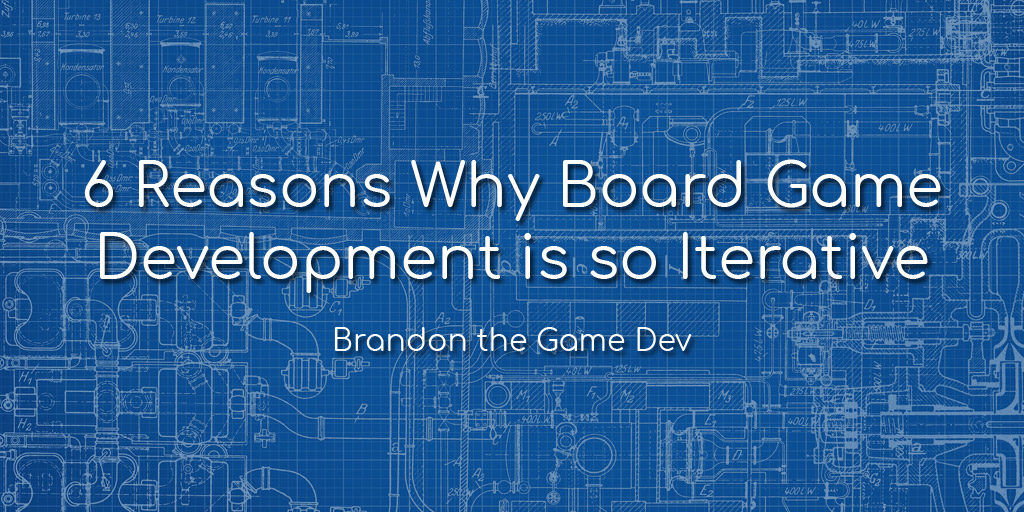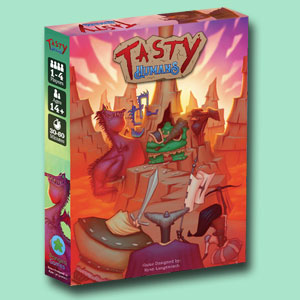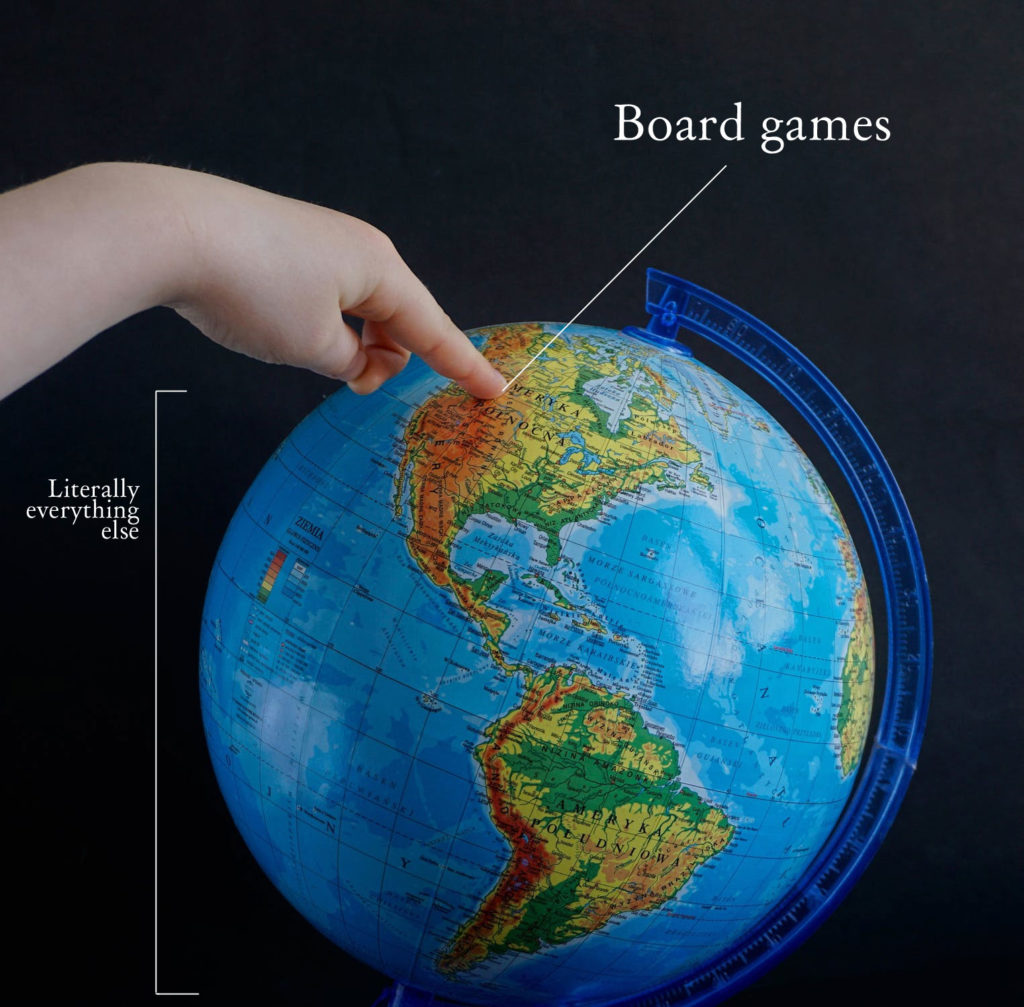6 Reasons Why Board Game Development is So Iterative
Board game development is notorious for its trial-and-error approach. Experienced designers and developers will tell you that it’s all about iteration. You may create dozens of versions of the same game until you finally find one you’re satisfied with. Everything can be scrapped at a moment’s notice – mechanics, rules, art, and even basic core concepts.

Looking for more resources to help you on your board game design journey?
Here you go: no email required!
Like this writing style?
Check out my latest blog on marketing here.
So what’s going on? Are game creators bad at defining project requirements? Do publishers need to training in project management?
I say no. In fact, iteration is the at the root of board game development. Today, I talk about six specific reasons why this is an unavoidable part of the process.
1. Play-testing is chaos.
In the abstract, making a board game is fairly simple. You come up with basic ideas, find physical pieces to represent those ideas, and come up with game mechanics. Then you regulate the expression of those mechanics through rules.
Board game development requires the creation of an elegant system, much like programming in software development. Much like in software development, though, the tiniest changes can have outsized impacts on how the system as a whole functions.
Even simple abstract games like Chess and Go are so complex that the smartest computers in the world have just figured out how to beat people at them. It takes all that processing power to be able to understand the possible ramifications of each individual move. These games, by the way, and hundreds or thousands of years old. Most games in development are less than a year old.
What I’m saying is that play-testing a brand new game is chaos. You cannot possibly understand the nature of your creation until you spend a lot of time testing it. As your understanding grows, you will have to make design changes based around happenings that you could have never anticipated.
2. Form follows function.
Board games are physical products. Their form follows their function and their function follows gameplay. Just above, I’d mentioned how board game development was chaotic at its core because of the myriad variables that you have to slowly discover through play-testing.
Imagine what that implies from a materials standpoint. Every time your game changes, there is a possibility that you will have to swap out parts. The board might need to be bigger or smaller. You may need more or fewer pieces. Pieces may need to change in size. Each time the gameplay evolves, there is a risk that the physical form of the game has to change as well.
Early on, while board games are still being developed on pen and paper or in Tabletop Simulator, changing materials is easy. Once you get late in the game, though, such as with art, custom plastic pieces, or miniatures, it can be very complicated. Sometimes you’ll find that physical limitations or the costs associated with materials force you to make gameplay changes.
3. Art direction is complicated.
Similar to the above point, art needs to first and foremost suit the needs of the game. Because gameplay changes, art and graphic design will often have to change as well.
Yet there is even more to it than just that. Art direction, plain and simple, is complicated. You have to describe exactly how to create a specific piece of art to invoke a certain emotion and meet certain technical requirements. Communication is key when doing this, and often clients – myself included sometimes – can only say “make it pop.” We give vague requirements to artists because we don’t know how to give clearer ones.
What does this result in? Exactly what you would expect – revisions, rework, and sometimes additional costs. More clearly describing what you are looking for helps, but it’s not always possible and it’s not always a solution even when it is.
My recommendation is that you start with sketches or speedpaints when gathering art. If you need to revise artwork, this gives you a chance to do so before the majority of the work is completed.
4. Reviews can catch you off-guard.
Once you finally create your game, you’re not out of the woods yet. After all the board game development is complete, you still need independent reviewers to convince potential customers that your game is a good one. While board game reviews tend to skew positive, this is by no means something you can take for granted.
When you send a game out for review, prepare for the possibility that it will be panned. If the game goes over poorly, you will want to make more revisions before releasing the game. (Or you may even want to scrap the game entirely.)
5. The market can catch you off-guard.
I’ve talked about how important it is to vet your ideas before launching a product. Researching the market, studying people’s behavior, and using data to figure out what people want goes a long way.
But can we be honest for a second? Nobody is a soothsayer. Trends change fast. The market is fickle.
It is possible to work for a year on a game, play-test successfully, and create the entire product. At the end, you may find that you were slightly too late to launch. The market moved on. It doesn’t happen all the time, but if it does, you can often rework parts of the game you’ve already made and create something fresh.
6. Distributors have different rule book than Kickstarter.
One thing that bothers me: board game creators overrate Kickstarter and underrate traditional distribution. Having your game in Barnes & Noble, Books-A-Million, or even Target is a safer bet than Kickstarter. Even small, local gaming stores, in my opinion, can bring you more sales and steadier cash flow.
But here’s the tricky thing. What succeeds on Kickstarter, which many board game creators use for funding, does not necessarily succeed in traditional distribution. With Kickstarter, shipping cost is a major driver of success. With traditional distribution, it’s shelf space or art style (looking buyable). The misalignment of incentives can force you into making revisions you didn’t expect.
If your endgame is to get into traditional stores, you will likely have to modify your game as a product. You might have to change materials, packaging, or even gameplay. This is easy to forget!
Embrace Iteration in Board Game Development
Board game development is rooted in trial-and-error. To succeed, you must accept this as a fact. Embrace the winding path of board game development and allow your product to slowly take shape. Creative work is often like this – meandering, unpredictable, and complex.
It’s not you. It’s the nature of the game!






